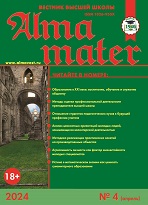https://doi.org/10.20339/AM.05-17.027
A.V. Pivovarova is senior researcher e-mail: anya.karm@yandex.ru; and V.O. Pivovarov is specialist e-mail: vya4eslav-1991@yandex.ru
at Monitoring & Evaluation of Quality of Education Center of Tomsk Regional Teachers Institute of Raising Qualification and Re-training of personnel of Education
Analyzed are results of realizing of final state examination of school pupils in Tomsk region, clearly demonstrated significant educational problems in cluster of rural schools. The author’s sociological research was being conducted in schools of one of rural municipalities of the Tomsk region, in which, as to results of passing through state final examination in the year of 2014, the highest percentage of students do not receive diplomas. The aim of the work was in estimation of the level of involvement of main participants of educational relations (pupils, parents, and teachers) in schools, working in difficult social context. Elaborated are three main parameters of involvement, i.e. loyal, communicative, activity, totality of which characterizes different levels of involvement in educational relationship. Also revealed are three trends that have significant influence on the course of educational process and training results of students.
Key words: educational process, involvement, difficult social context, participants of educational relations, state final attestation.
References
- Vitgenstein, L. Philosophical researches. Moscow, 1994.
- Konstantinovsky, D.L. Reality of education. Sociological research: from metaphor to interpretation. Moscow, 2013.
- URL: http://www.ecopsy.ru/publikatsii/ru-effektivnoe-zanudstvo.html
- Coleman J.S. (1969). Equality and achievement in education. Boulder, CO: Westview Press.
- URL: http://www.gallup.com/services/177047/q12-meta-analysis.aspx
- Hanushek E.A. (1986). The Economics of Schooling: Production and Efficiency in Public Schools. Journal of Economic Literature 24, 1141–77.
- Kuh G. (2007) What Student Engagement Data Tell Us about College Readiness. Peer Review. Vol. 9, no. 1, pp. 4–8.
- Mann S.J. (2001) Alternative perspectives on the student experience: Alienation and engagement. Studies in Higher Education. Vol. 26, no. 1, pp. 7–20.
- Pace R. (1984) Measuring the Quality of College Student Experiences. An Account of the Development and Use of the College Student Experience Questionnaire. Los Angeles: Higher Education Research Institute Graduate School of Education University of California.
- Pincus F.L. (1980) The False Promises of Community Colleges: Class Conflict and Vocational Education. Harvard Educational Review. 50:332–361.
- Shor I. (1992) Empowering Education: Critical Teaching for Social Change. Chicago: University of Chicago Press.
- URL: http://www.thesocialworkplace.com/2012/09/sustainable-engagement-isnt-an-event-its-an-experience/











.png)






